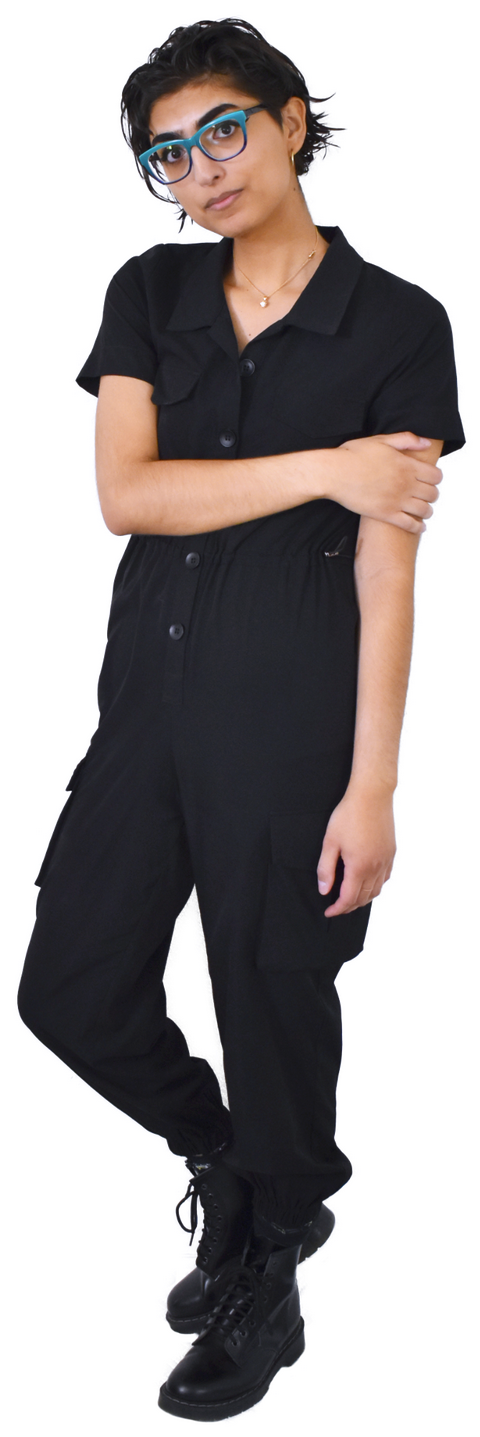TNET
Transgender/Nonbinary Education & Trainings
serving Albuquerque, NM and beyond
by Daisy Fatemi & Charlie Alexander

© 2023-2025 Daisy Fatemi & Charlie Alexander
Press
Articles
Interview • March 19, 2024 • Bold Journey
Interview • November 2, 2023 • CanvasRebel
Education is the Foundation: A Conversation with Co-Owners of TNET
Interview • June 21, 2023 • Hannie Lyles for Meow Wolf
Podcasts
#73 Rainbow Everything Everywhere All At Once With Charlie Sprinkman & Guests
Podcast • May 27, 2024 • Unruly Travel Podcast
Disrupting Your Trans Understanding: Trans 101 with TNET
Podcast • July 25, 2023 • Disruption Podcast
Disrupting Your Understanding of the Trans and Nonbinary Youth Experience with Charlie Alexander
Podcast • July 11, 2023 • Disruption Podcast
Disrupting Your Understanding of the Trans and Nonbinary Experience with Stacy Fatemi
Podcast • June 27, 2023 • Disruption Podcast
About TNET
TNET (Transgender/Nonbinary Education & Trainings) is an education-focused agency owned, founded, and staffed by trans educators Daisy Fatemi (she/her) and Charlie Alexander (they/them). TNET offers trainings, workshops, and print materials designed to help all people understand and interact with trans and nonbinary people more effectively.

Daisy's
Bio
Daisy Fatemi 🔊 (she/her), formerly Stacy Fatemi, is a nonbinary trans educator of color from Albuquerque, New Mexico. After coming out as trans at the age of 17, Daisy began casually educating others to address a gap in gender knowledge that affected her everyday life. Now, at age 28, she is passionate about educating people on gender-neutral language, physical transition-related topics, and equitable access for trans athletes.
Before TNET came to be, Daisy did trainings as the first Education & Outreach Program Manager for the Transgender Resource Center of New Mexico, and made educational works for the Health Equity Alliance for LGBTQ+ New Mexicans. When not at work, Daisy can be found making metal, punk, and ambient music with her longtime friend, the 6-string bass guitar.
Charlie's
Bio

Charlie Alexander 🔊 (they/them) is a trans and nonbinary parent to two kids. After winding up pregnant at age 17 without access to any support, resources, or assistance, Charlie became ferociously passionate about educating folks on important topics such as sexual health, boundaries and consent, radical love, and all things sex-, sexuality-, and gender-related. They believe whole-heartedly that education is the foundation to liberation which led them to join Daisy in building TNET in January of 2023.
In 2022, Charlie earned two Bachelor of Arts degrees in Women, Gender, and Sexuality Studies and Sociology, as well as a Certificate in Race and Social Justice from the University of New Mexico. They plan to continue their educational journey in graduate school.
Charlie is passionate about intersectional feminism, disability justice, and transgender issues. They co-founded a disability justice group in 2021 called Crip Liberation. In their free time, Charlie enjoys reading, making art, roller skating, volunteering, and spending time with their sweet children.
TNET LLC
Transgender/Nonbinary Education & Trainings
Albuquerque, NM, USA
Phone: +1 (505) 219-1949
Email: contact@transeducation.net
Instagram: @tnet.trainings
Daisy Fatemi
Email: daisy@transeducation.net
Charlie Alexander
Email: charlie@transeducation.net
404: Not Found
Or not really so much "not found" as "I intentionally made a link redirect here because making it go to the right place is a little too much work right now." (Sorry. I'll get around to it soon.)
-Daisy
© 2023-2025 Daisy Fatemi & Charlie Alexander
Marketing
Here are some helpful guidelines regarding our name:
TNET should be referred to as TNET. This is pronounced "tee-net".
The subtitle Transgender/Nonbinary Education & Trainings is not really our name so much as it is a description of what we do. As such, one might position it after the word TNET to give the reader more context.
The official business name (the one to make checks out to) is TNET LLC.
Here are some marketing descriptions for us, and for each of our trainings:
TNET
TNET (Transgender/Nonbinary Education & Trainings) is an education-focused agency owned, founded, and staffed by trans educators Daisy Fatemi (she/her) and Charlie Alexander (they/them). Serving Albuquerque, New Mexico and beyond, TNET offers trainings, workshops, and print materials designed to help all people understand and interact with trans and nonbinary people more effectively. You can find out more about them at transeducation.net.
#101: Transgender Cultural Fluency
TNET’s #101: Transgender Cultural Fluency training is the tried-and-true workhorse of trans education! Dynamically co-presented by Daisy Fatemi (she/her) and Charlie Alexander (they/them), this presentation is one from which even old pros can learn a thing or two. We'll cover everything you need to know from the ground up, including who trans people are, why it’s important to know about them, and how we can all be better advocates. This 101 is an excellent go-to for any human who interacts with other humans. Let’s build up to greater levels of education together!
#123: School Best Practices for Trans & Nonbinary Students
Marketing description coming soon
#178: Gender Outside the Binary
Marketing description coming soon
#202: Have Your Trans Intersectionality and Eat It Too
Marketing description coming soon
#234: Busting the Binary in the English Language
Marketing description coming soon
#249: Gender Exploration with Young People
Marketing description coming soon
#M01: Preparing Patients for Life After Vaginoplasty
Marketing description coming soon
© 2023-2025 Daisy Fatemi & Charlie Alexander
Accessibility
One of our principal values at TNET is that of accessibility. That is, we believe our content and the education we provide should have as few barriers to access as possible. Here are some of the ways we try to improve accessibility:
Image and video descriptions for all social media and website images
Alt text embedded in all images
Captions on all video content
Live transcription on all virtual trainings, as well as the option to turn it on for in-person trainings (requires an internet connection)
Screen reader versions of all digital content created by TNET co-owners (these are .txt files that include image descriptions for all illustrations/imagery and all text in the zine)
Sliding scale prices for all TNET trainings
Sliding scale prices on all TNET Originals at the TNET Store
Digital and physical copies available for all TNET Originals at the TNET Store
Five free discount codes per month given to trans folks so they can get free zines from us
Accessibility menu on all websites
TNET co-owners masked at all trainings and public events (we also mask in all public places outside of TNET goings-on, because we believe in disability justice!)
Encouragement for all trainees to mask during trainings and public events (we bring masks for anyone willing to wear them)
Trainings and content offered low-cost or even free to folks who cannot afford to pay us but would still greatly benefit from receiving it
Coming soon: Spanish-language trainings and content
We are always willing to do better. If there is something that would make our content more accessible to you, please let us know!
© 2023-2025 Daisy Fatemi & Charlie Alexander
Zine Resources
Binding Safely and Effectively
Where to find binders:
Tucking Safely and Effectively
Where to find gaffs:
Thoughts
(Did you mean to go to tnet.store/afterhours?)
After Hours
TNET After Hours is the 18+ section of the TNET Store. We created it to be able to showcase products that are erotic in nature, because we believe that eroticism should be celebrated!
The current climate around nudity and bodies on social media shows a great deal of censorship towards only certain types of bodies. Historically, queerness has been portrayed as being purely sexual as a way of discrediting and demonizing queer people. We do not believe that bodies are inherently sexual, or that nudity = sex; to believe so is to fetishize. How often are trans people—specifically transfeminine people—fetishized and seen as inherently sexual, not only in porn but in consumers of other kinds of sex work? Fuck that!
We don't think that anything is wrong with being sexual, or with being a sex worker. We also want to normalize trans bodies in all of their shapes and sizes, because trans people are all unique, and there's no one way to look or be trans. (Plus, we're hot. Deal with it.)
Bathrooms
We have bathroom signs for sale on the TNET Store as a way of promoting safety for trans people in public restrooms. Restrooms are often avoided by trans people because of how highly gendered and policed they are. In fact, many pieces of legislation have sought to ban trans people from using the bathrooms that align most with their gender. Even outside of legislation, trans people are often harassed and questioned for existing in gendered restrooms, to the point where 8% of trans people in 2015 reported experiencing urinary tract infections or kidney-related issues specifically related to avoiding public restrooms.
When you see someone in the bathroom and you think "hm, I think that person is trans," ask yourself "why? Why did I think that?" And then ask yourself "why does it matter, anyway?" Because, truly, it doesn't. The only way to know someone is trans is if they tell you, after all—and someone's transness shouldn't have any impact on the other people in any bathroom that they might be in.
The truth is, you use restrooms with trans people all the time. We make up around 5% of the population, by many estimates. It would be a statistical wonder to never have shared a bathroom with a trans person before! The only difference between those times and the time that you're questioning it is how that person looked and your preconceived notions about how people in that bathroom should look. But really, people can (and do!) look any way in any kind of bathroom. It's your responsibility to be questioning why you had any discomfort or any sort of problem with that, and the best way to quell that is to increase your education on the matter and to get to know more trans people, naturally, over the course of your life.
Trans people have bodily functions. Sometimes, we have to pee. Let us pee, and let us pee safely!
Here's how my name, Daisy Fatemi, is pronounced:
If that audio file doesn't work for you, here are some ways you might be able to figure out how to pronounce it.
"Fatemi" has the same vowels and stress pattern as "spaghetti". That is, the second syllable is stressed, and the vowels are like this:
The A is an "uh" sound (like in "cut");
The E is an "eh" sound (like in "them");
And the I is a long "ee" sound (like in "be").
So, you might write "Fatemi" phonetically as fuh-TEH-mee.
In the International Phonetic Alphabet, my pronunciation of "Fatemi" would be written [fəˈtʰɛːmiː].
If you pronounce "Fatemi" with Spanish phonetics, you'll get close enough.
Here's how my name, Charlie Alexander, is pronounced:
In the International Phonetic Alphabet, my pronunciation of "Charlie Alexander" would be written [ˈt͡ʃɑːɹɫi ˌæɫɪɡˈzæːndɚ].

